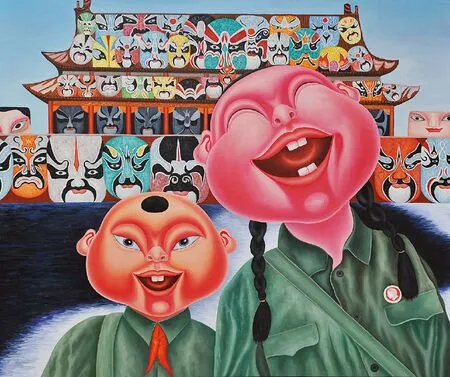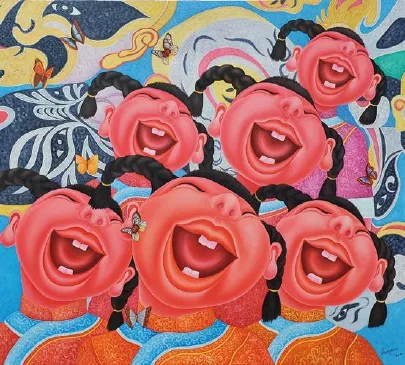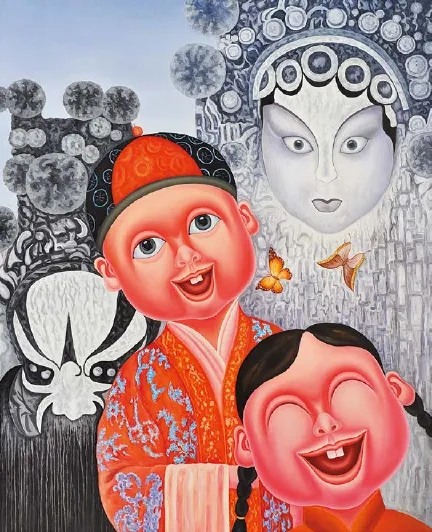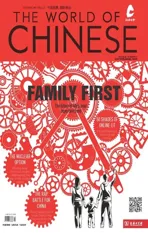Children revisited
2016-09-12
Children revisited

"happy Chinese Children" series, 2012
What inspired you to create this "Happy Chinese Children" series?
There's a story behind it. Once, I returned home after a long business trip, and my son showed me a picture he had drawn. It was a good one. There was a house under a beautiful blue sky with a bird flying across the clouds. And inside the house was a kid. But my son said to me, "Dad, I feel that we are less free than the bird." I was so surprised and touched because at that time he had just entered primary school. I realized that today's children have too much pressure. Their parents and teachers pay too much attention to their academic performance. The children have to learn so many things at a very young age. It's not like when we were young. They live a better life materially, but we were much simpler and happier. So, it came to me to paint happy children.
What are the inspirations behind the Chinese elements in your works?
When I drew this series, I hoped that it would be more than just kids, that it would be about China, Chinese culture and Chinese elements. So, I chose some typical Chinese icons, like opera masks, Tang dresses, and Tian'anmen Square. They don't represent anything specific, just Chinese symbols.

Song Wei (宋微)
Song Wei, born in Weifang, Shandong Province in 1966, is a visiting professor in art at the Center of Film and Television Art and School of Art of Daqing Normal University in Heilongjiang Province. Song now lives in either Shanghai or Weifang when he is not traveling for exhibitions around the country. With pieces in galleries around the world, Song's works mainly focus on realistic themes of society.
These works seem old-fashioned and political-perhaps drawing on a theme of collectivism. Is this what you meant to convey?
Not really. These figures do look old-fashioned because I have some memories and feelings about the past. But I don't really care about the so-called "political meanings". Actually, people my age did not really experience the Cultural Revolution. I did some research to get a basic understanding of that period, but it was just for finishing these works. Basically, what I really want to express is the innocence of the children.
So, this series took a lot of preparation?
Yes, like always. Before I actually started painting, I spent almost half a year preparing. Because I usually focus on realistic topics, this series had a different style, which is a little comical and exaggerated. From the artistic perspective, from the content to the skill, everything needed to be prepared.
Some think the charm of this series is the childish innocence, but others find a profound implied message. What do you think of that?
Actually, I just want to create something that can make viewers happy, whether they are kids or parents and teachers. I want to convey that we should not put our children under too much pressure with utilitarian concerns. But that's just my personal view about today's education. I am not sure whether this request will be heeded.
How did your childhood influence your work? When I was young, I just felt that life was good if I could just fill my belly and dress warmly. It was a simple but happy life. As for its influence on my painting, maybe it results from most of my works being about realistic topics, like rural life. After all, that's where I am from. I think works that eschew reality are empty and meaningless. – S.j.

"happy Chinese Children" series, 2012

"happy Chinese Children" series, 2012
